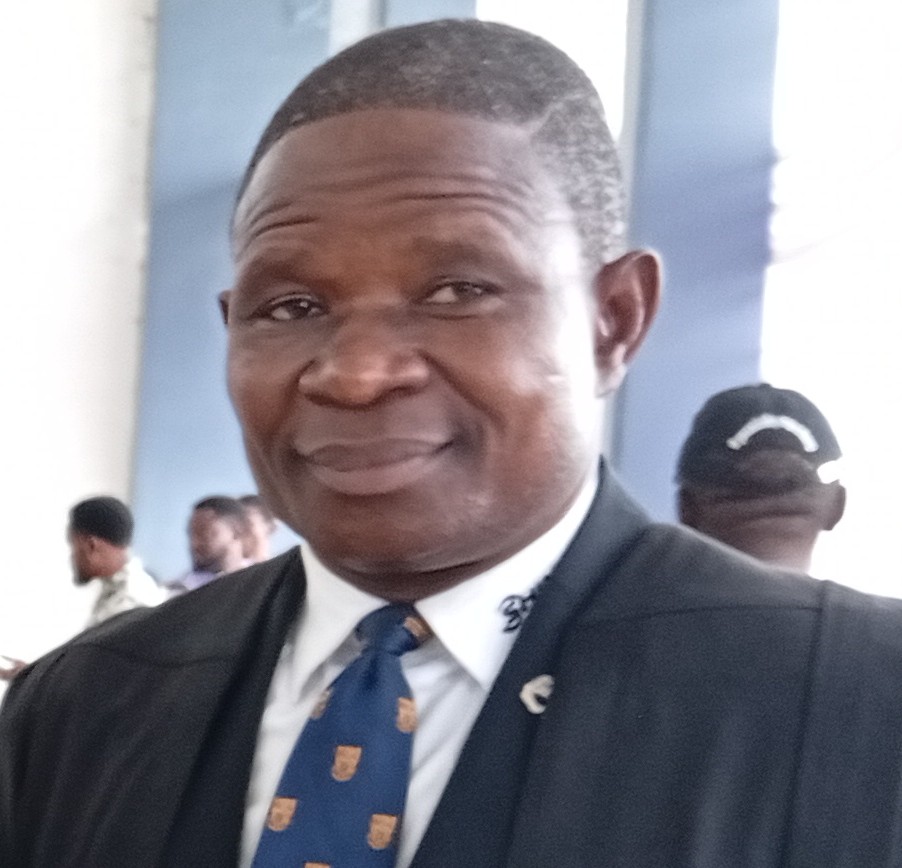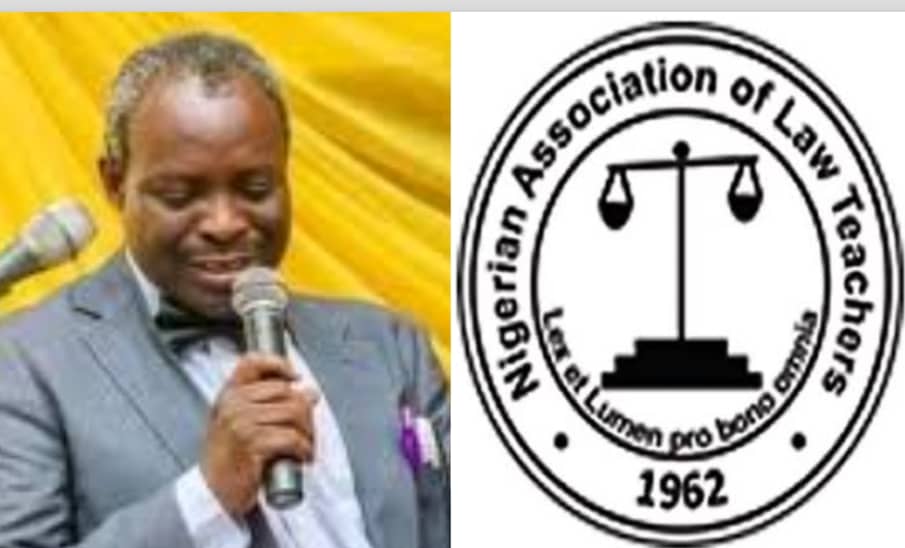WHY MR. CHINEDU AGU IS STILL IN DETENTION: A REFLECTION ON THE MISGUIDED APPROACH TO PUBLIC-INTEREST ADVOCACY BY SOME COUNSEL IN NIGERIA (A Friendly Response to A Public-interest Advocate)
By Sylvester Udemezue
On 12 October 2025, my great learned friend, respected senior, and elder, Mr. John Aikpokpo-Martins, wrote to me on The Law Centre (TRM) as follows:
“Udems, our learned colleague, Chinedu Agu, Esq., is still in detention. Please kindly deploy your constructive engagement tactics to grant him freedom.” (Note: I have Mr. Aikpokpo-Martins’s permission to use this comment)
My Response was as follows, I thought it should be of great interest to the general public especially in relation to the ongoing discussion on what should be the proper approach in public-interest advocacy:
Dear Sir, with utmost respect, permit me to state (for the record and in good conscience) that the continued detention of our colleague, Mr. Chinedu Agu, is not unconnected with the misguided and unstrategic approach adopted by some of our so-called public-interest advocates generally; and in this instance, perhaps, by some of those handling his matter.
Now, to answer to my learned senior and Bar leader, the question that arises is, why is our learned friend, Chinedu Agu, still in detention. With due respect, I thinks he remains in detention BECAUSE:
- Some of our colleagues, including respected seniors, have reduced public-interest advocacy and Bar leadership to mere rhetoric. They appear more interested in applauding the NBA President/leadership and other leaders of the Bar and the Bench for eloquent speeches and beautifully crafted press statements than in demanding pragmatic, sagacious, and result-oriented actions to address the slow, painful, and broken state of justice administration in Nigeria. If administration of justice was effective as it should be, there is no reason why Chinedu Agu’s bail application should not be taken and granted the same day he’s arraigned; he ought even to be released on self recognition, considering his status.
- Many of our learned professors and senior lawyers celebrate superficial symbols of progress (for example, the valedictory speeches of former Chief Justices of Nigeria) while avoiding the uncomfortable TRUTH: that successive Chief Justices and leaders of the Bench have failed to tackle the inexcusable delays and institutional rot that have crippled our justice system. Tell me: what concrete, pragmatic efforts has any of the leaders (past or present) of the judiciary made to help make administration of justice fast in Nigeria as we have in other countries? Yet, we applaud them as performing fantastically. If administration was fast, Chinedu Agu would not be in detention till today.
- Instead of engaging in purposeful advocacy (to push for the appointment of more judges, or for the effective implementation of section 66(3) of the Nigeria Police Act 2020, which mandates lawyers to be posted to every police station in Nigeria for oversight and accountability in police human rights practices, among other ills that bedevil the Bar, the Bench, the legal profession, and the entire legal system) some of our so-called (public-interest) advocates have chosen counterproductive paths.
- Most critically, from the very beginning of the current matter (the Chinedu Agu scenario), it’s possible that instead of adopting constructive engagement and pragmatic communication with the detaining authorities, some of our colleagues handling the case had resorted to confrontation, posturing, grandstanding, and ego-driven theatrics. The result is the unfortunate courtroom spectacle now playing out before us, leading to the illegal and unfortunate continued detention of our colleague.
THE MISSING LINK: UNDERSTANDING THE TRUE HORIZONS OF PUBLIC-INTEREST ADVOCACY
With due respect, dear Sir, it appears that many within our Bar (including yourself and some of your mentees) do not yet fully appreciate the breadth and horizons of public-interest advocacy in the face existing realities in Nigeria. Until that understanding deepens, the unfortunate outcome will remain the same: a continued tendency to regard litigation as the only (or the most effective) tool of public-interest work. This narrow and reactive view leads to the filing of unnecessary and avoidable cases, adding to the already unbearable congestion in our courts, while yielding very little by way of tangible results or systemic reform. True public-interest advocacy is far broader than litigation. It embraces a spectrum of strategic actions: constructive engagement, pragmatic communication, quiet diplomacy, coalition-building, institutional partnership, and evidence-based policy influence, among others. It requires wisdom, not mere emotion; ethics, not opportunism; and results, not noise.
A CALL FOR REORIENTATION AT NBA-SPIDEL AND OTHER PUBLIC-INTEREST GROUPS AND ADVOCATES
It is my humble suggestion that the next Annual General Conference of the NBA-SPIDEL should dedicate serious attention to the philosophy, scope, and ethics of public-interest advocacy. Let there be thoughtful papers and critical discussions to help our colleagues understand that not every self-proclaimed “public-interest lawsuit” is truly in the public interest. Such an engagement may help many of those currently parading themselves as public-interest advocates to reflect more deeply on their methods and reconsider their current, often misguided, approach, which, sadly (with due respect), does more harm than good to the noble cause they claim to serve. At present, genuine public-interest advocates are painfully few in Nigeria. Most who bear that noble label are, in truth, far removed from the ideals, humility, and disciplined strategy that define authentic advocacy for the public good.
STILL ON THE CASE OF MR. CHINEDU AGU
Let us be honest: Mr. Agu was only exercising his lawful rights. He doesn’t deserve his current, unjustified ordeal. His case should never have escalated into a courtroom confrontation as we are witnessing. Between the police and the Bar, the latter should provide leadership: leadership grounded in wisdom, maturity, civility, and constructive dialogue. Unfortunately, perhaps, those who handled the matter after his arrest (many of them your mentees or following after your footsteps, Sir) chose confrontation over engagement, hostility over strategy, and self-display over substance. Had they embraced the strategic protocols of constructive engagement, pragmatic communication, and professional diplomacy, the matter would have been quietly resolved long ago without the necessity to drag it to court, save as a last resort as I have already suggested. The tragic reality is that Mr. Chinedu Agu’s ordeal is a direct consequence of a misguided, ego-driven, and self-promotional brand of advocacy that values drama over impact and visibility over results. Our colleagues should have concentrated on ensuring that Chinedu Agu was first set free, instead of using his case to try to shine or practice courtroom posturing. After his release, they could then file a lawsuit to restrain the police and those allegedly persecuting him for legitimately exercising his lawful, constitutional rights.
CONCLUSION
Dear esteemed elder and senior, with due respect, Sir, much of the responsibility for this unfortunate ordeal (the arraignment, remand, and continued detention of our learned colleague) rests largely on you and some of your mentees who have, albeit with good intentions, been pursuing a misdirected form of public-interest advocacy. May we, going forward, I respectfully submit, learn to combine passion with prudence, and activism with strategy. True, effective public-interest advocacy is not about noise; it is about results.
Respectfully,
Sylvester Udemezue (Udems)
Proctor, The Reality Ministry of Truth, Law and Justice (TRM)
Tel: 08021365545.
Email: udems@therealityministry.ngo
Web: www.therealityministry.ngo
(13 October 2025)



